Ring Video Doorbell 3 vs. Arlo Video Doorbell: Which should you buy?
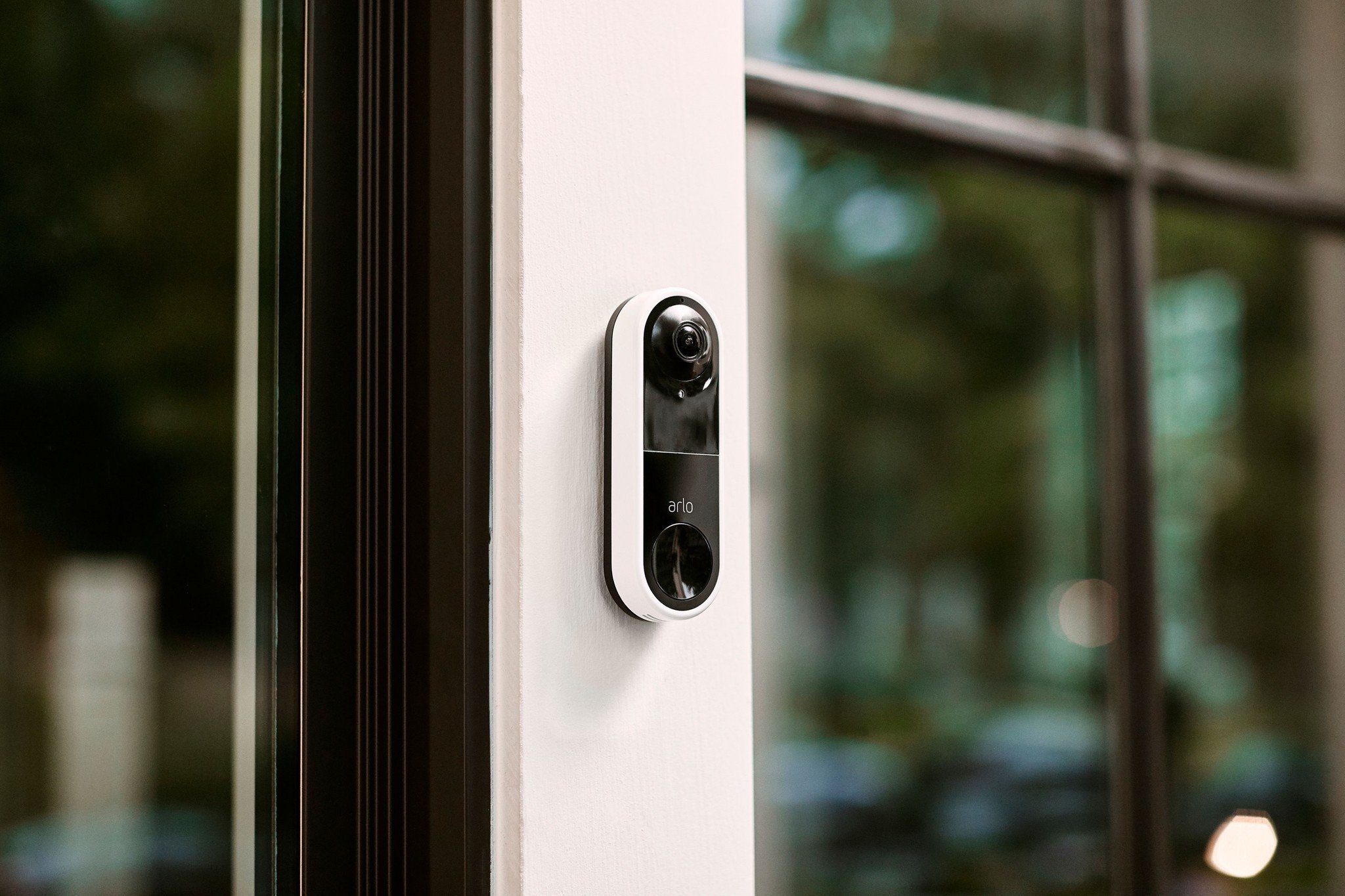
Arlo Video Doorbell
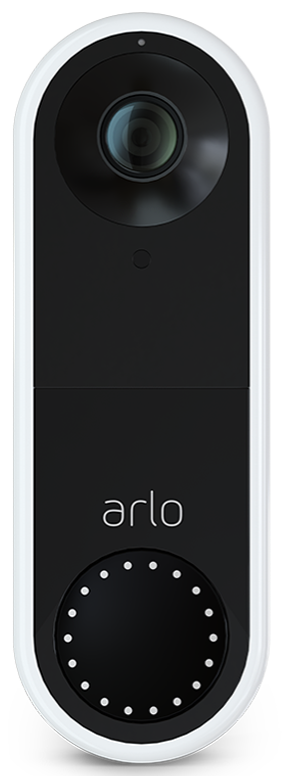
The Arlo Video Doorbell features some of the most advanced object detection on the market, so it can tell you if it saw an actual person versus just a cat or a car. It also has some amazing security and convenience features, like the ability to respond to the door using one-touch pre-recorded messages or to sound a siren if someone shouldn't be there.
Arlo Video Doorbell
Best value
Ring Video Doorbell 3
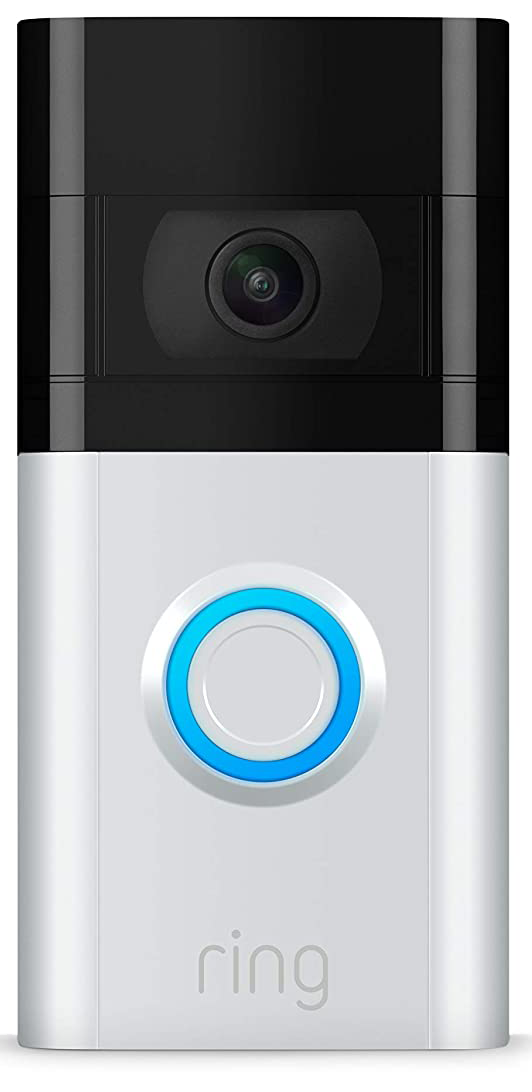
Ring continues to offer one of the most advanced wireless video doorbells on the market with the Ring Video Doorbell 3. It's a great way to get all the features you want from a video doorbell without having to mess with wires and electricity.
Ring Video Doorbell 3
When you need wireless
As the company that popularized the first major video doorbell on the market, Ring has a lot of expectations to live up to thanks to its legacy of producing solid products. The Ring Video Doorbell 3 improves over previous generations by providing a brand new "Near Zone" that detects movement between 5-15 feet to help avoid erroneous detections. It also includes new adjustable motion detection areas, privacy zones, and support for 5GHz networks.
While Ring is an established player in the video doorbell market, Arlo isn't just an unknown name in the home security sector. It may have taken Arlo several years to put together a proper video doorbell product, but the outcome of that time is the Arlo Video Doorbell, which delivers a lot of features for less money (although to get those features you need to pay for a monthly Arlo Smart subscription).
Looking at the specs alone will show that these doorbells have plenty in common, but Arlo edges Ring out in several different areas making it a product that probably makes sense for more homeowners than the Ring Video Doorbell 3.
Ring Video Doorbell 3 vs. Arlo Video Doorbell Motion detection makes a difference
Both doorbells have cameras, but each views the world around it differently. The Ring Video Doorbell 3 relies on a combination of traditional motion sensing techniques and a unique heat detection method. When the camera sees motion and detects heat (something a living thing produces), it generates a motion alert and tells users that something has been detected. This gives Ring a great way to sense motion from something actually alive. That's great for cutting out erroneous notifications that might be generated from plants moving or a car driving by.
| Header Cell - Column 0 | Arlo Video Doorbell | Ring Video Doorbell 3 |
|---|---|---|
| Price | $150 | $200 |
| Power Source | Hardwire | Removable rechargeable battery, or hardwire |
| Video resolution | 1536 x 1536 | 1080p |
| Aspect ratio | 1:1 | 16:9 |
| Field of view | 180 degrees | 160 degrees |
| Dimensions | 5.0 in. x 1.7 in. x 1.0 in. | 5.1 in. x 2.4 in. x 1.1 in. |
| HDR Video | Yes | No |
| Digital Zoom | Yes | No |
| Night Vision | Yes | Yes |
| Live view | Yes | Yes |
| Two-way audio | Yes | Yes |
| Pre-recorded responses | Yes | No |
| Built-in siren | Yes | No |
| Connectivity | 2.4GHz Wi-Fi | 2.4GHz and 5GHz Wi-Fi |
| Motion detection | Adjustable motion zones, Advanced object detection | Adjustable motion zones |
| Privacy Zones | No | Yes |
| Smart Assistant Integration | Amazon Alexa | Amazon Alexa |
Arlo's AI-based algorithm can intelligently detect and differentiate between different types of objects like humans and animals. That ability is a key factor in eliminating erroneous motion alerts. It also grants a level of certainty that motion detections are almost always going to be because a human was spotted. That gives Arlo the upper-hand in actual motion detection, but it could make some folks uneasy about what their video doorbell sees and where that information comes from.
Be an expert in 5 minutes
Get the latest news from Android Central, your trusted companion in the world of Android
On some occasions, your video doorbell might detect motion that's not right in front of the camera. The Ring Video Doorbell 3 features what Ring calls the "Near Zone" to help prevent these detections. This Near Zone is designed to only detect movement between 5-15 feet away from the camera. That prevents erroneous motion detection caused by cars driving by or bugs flying right up to the camera (a common problem that you'll know about if you have any kind of security cameras).
However, Arlo's combination of AI-based object detection and a 12x zoom option on its camera offers better options for users. Aside from preventing unwanted notifications due to erroneous motion detection, Arlo offers users a way to zoom in on whatever might be happening further away than your doorstep. That means if someone is snooping around your premises, or if it's just a bear or other wild animal roaming around your yard, you can zoom in on the action via the Arlo app and get a clearer view.
Arlo Video Doorbell Video quality is important
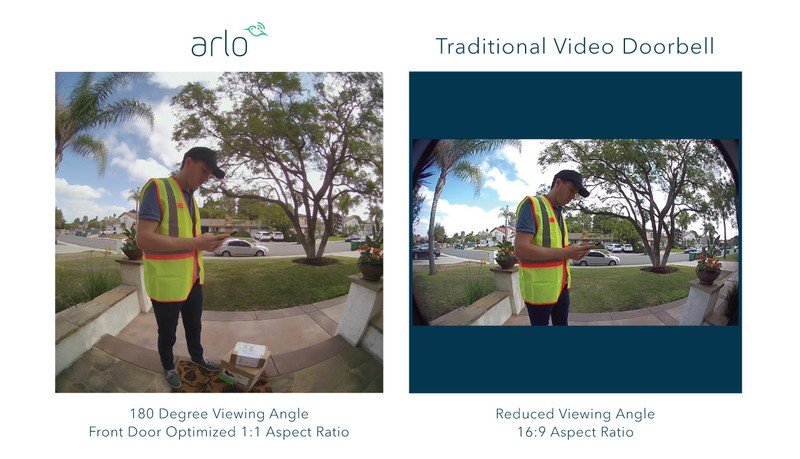
HDR video on the Arlo Video Doorbell is designed to deliver better quality videos through a wider dynamic range. What does that mean? If a bright sky is shining a light on your porch, your doorbell camera has to be smart enough to understand that it's more important to see someone's face instead of just a blue sky.
The Arlo Video Doorbell can utilize HDR video to better balance these situations, cutting down on those times when the sky is completely blown out or when it makes it look like the person on your doorstep is a glowing silhouette. It's not just about quality; it's about clarity, too. Ring Video Doorbell only features SDR, or Standard Dynamic Range video, and simply won't look as well balanced or clear as what Arlo can deliver.
Arlo utilizes a wider 180-degree field-of-view than the Ring Video Doorbell 3's 160-degree field-of-view, but it also encapsulates this view into a 1:1 aspect ratio. While most prefer to consumer videos in the 16:9 aspect ratio that Ring delivers, Arlo has found modifying the field-of-view to fit in a 1:1 square ratio is better adapted for seeing people on your porch. Arlo's camera can see the entire person at the front door, including the package they might have left on your doorstep.
Arlo Video Doorbell Telling someone to buzz-off after they buzz-in
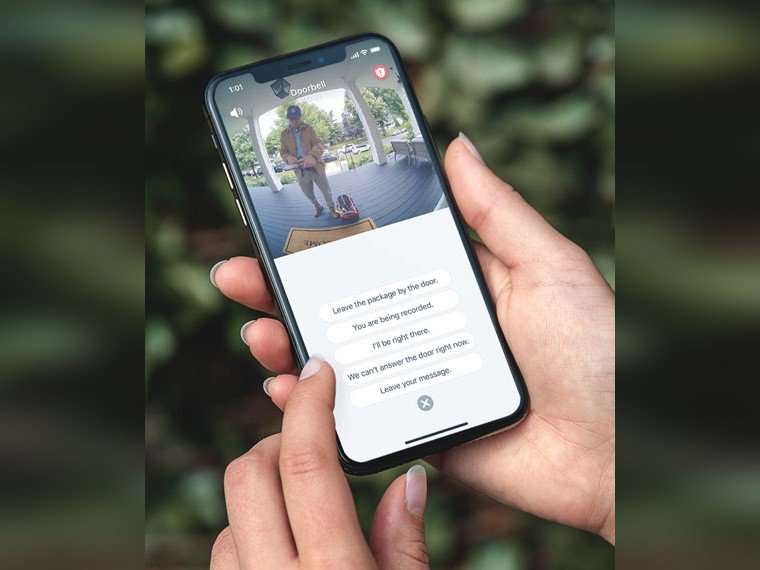
Both video doorbells offer two-way communication so that you can hear and speak to the person at your door, but what if you're in a meeting and can't directly talk to the person? Arlo offers a way to respond using pre-recorded responses, all accessible via the Arlo app while watching the doorbell video. A single click will emit an audible message from the doorbell, letting someone know you're busy and can't come to the door, or to deliver that package to the side entrance. That's a huge convenience for any number of situations.
What if the person on your doorstep isn't supposed to be there? Just as we said before, two-way communication is great until you're in a situation where you can't use it. That's why Arlo's built-in siren is a phenomenal feature. Click the siren button on your Arlo app and your doorbell will emit a loud screech that's sure to drive any person or animal away from your porch instantly.
Ring Video Doorbell 3 vs. Arlo Video Doorbell But there's a catch
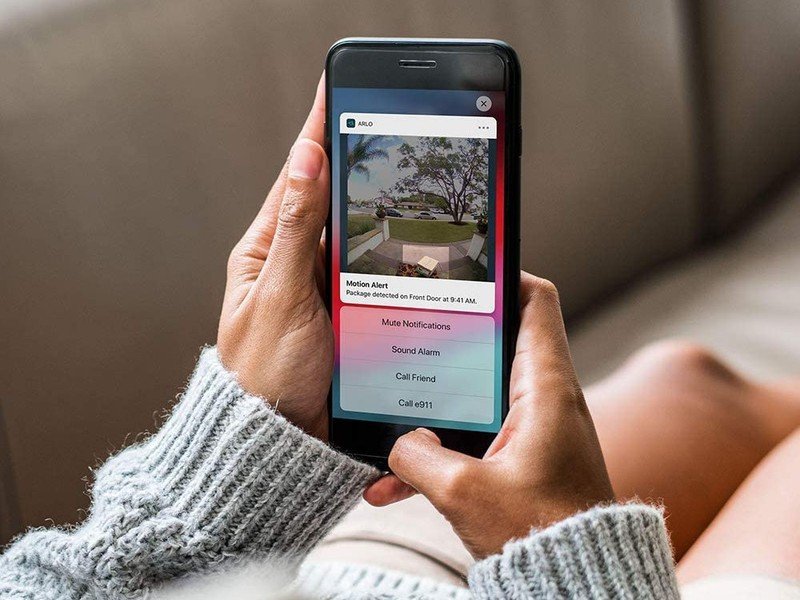
The Arlo Video Doorbell has some pretty amazing features, but some of the best features are only available when you subscribe to the Arlo Smart subscription for $3 per month. Yes, that's another annoying subscription to add to your ever-growing list, but this one will unlock Advanced Object Detection (distinguishing between things like animals, people, vehicles, etc.), Cloud Activity Zones, Package Detection, and more robust alerts. Arlo's basic (free) plan stores recordings and events for seven days, while the $3/month plan will keep recordings for 30 days.
Requiring a subscription for these types of features means that the Arlo Video Doorbell might lose some of its initial value proposition. However, with a $3 per month cost, that's roughly one-and-a-half years to make up the cost difference between the Ring Video Doorbell 3 and the Arlo Video Doorbell. But here's the big win for Arlo: While Arlo puts advanced features behind a paywall, Ring puts your entire videos behind a paywall. You can view the live stream for free with a Ring Video Doorbell, but any recorded video is only accessible with Ring's subscription service, known as a Ring Protect plan.
Ring Protect plans range from $3 to $10 per month depending on which Ring products you want to cover. Ring's $3/month subscription service adds extra storage time for your videos, as well as enabling the snapshot feature for Ring Video Doorbells. Snapshot will take pictures with the video doorbell throughout the day, helping to fill-in that timeline a bit better and give you an idea of what's happening between motion detections.
Ring Video Doorbell 3 Batteries are an inconvenient convenience
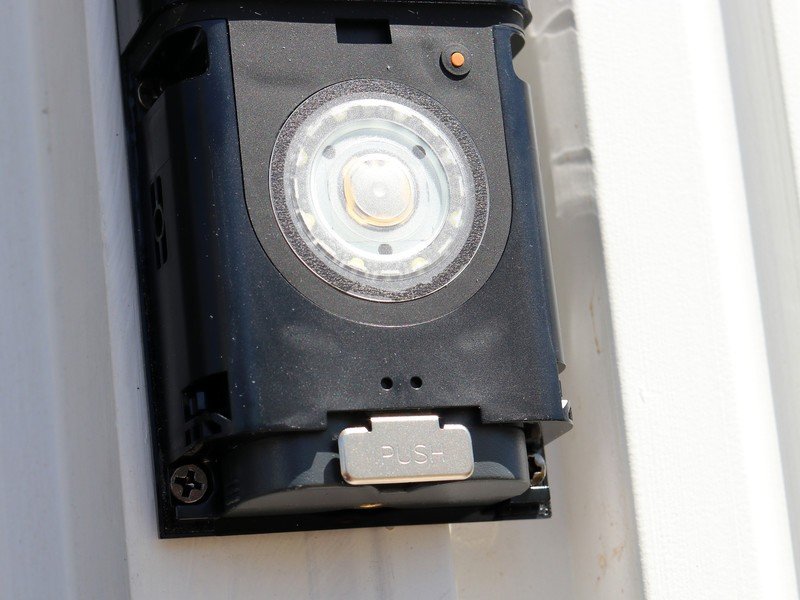
The Ring Video Doorbell 3 offers one big advantage over the Arlo Video Doorbell: the ability to use it wirelessly. Ring packs a removable, rechargeable battery inside each Ring Video Doorbell 3. Since you won't ever have to worry about wiring things up and getting in trouble with your landlord, the Ring Video Doorbell 3 is a renter's dream. It's also great for homeowners who might not have an existing doorbell wired up and don't want to run electrical wire.
However, batteries also add extra inconvenience to the mix since you have to regularly charge it. Many wireless video doorbells, like the Ring Video Doorbell 3, have month-long battery life, but it's still extra maintenance. Still, Ring's ability to run wireless or hard-wired gives it a versatility that the Arlo Video Doorbell doesn't have.
Ring Video Doorbell 3 vs. Arlo Video Doorbell How about privacy or virtual assistants?
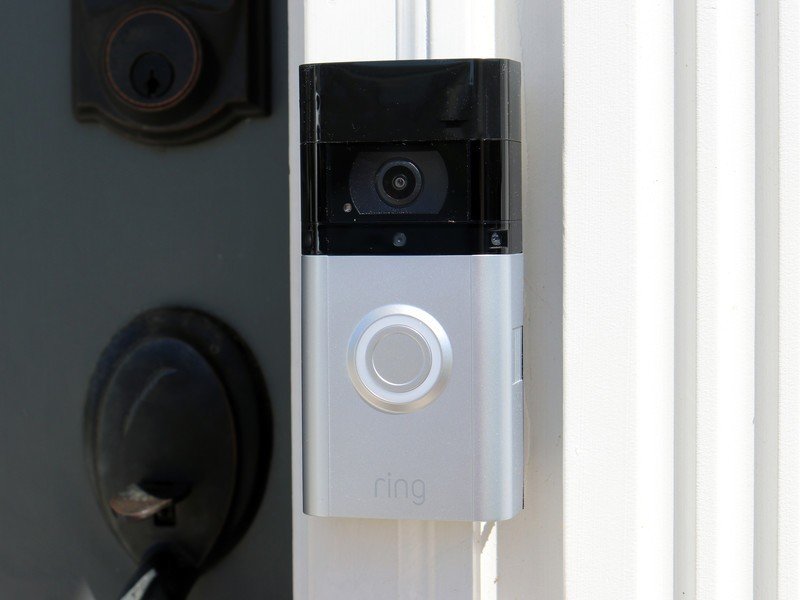
Ring Video Doorbell 3 has Privacy Zones, which allow users to completely block out parts of the video from being recorded. That means if you've got an open bedroom window or something else you'd like to keep private, you can completely block out that portion of the video from within the Ring app. That's particularly great for sharing a video that's been recorded via social network or the Ring Neighbors app. The Arlo Video Doorbell doesn't offer this option.
Both Arlo and Ring have excellent Amazon Alexa integration that lets users control their doorbell with the sound of their voice. That also means it's easy to show your video doorbell on your Echo Show or other Alexa-powered display. As of June 1, 2020, the Arlo Video Doorbell now also has Google Assistant support.
Arlo Video Doorbell A clear choice
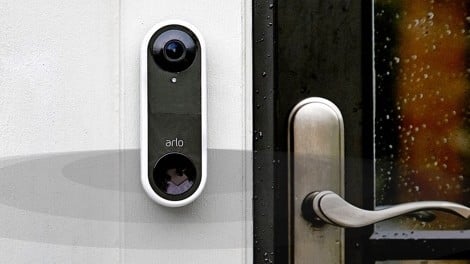
The Arlo Video Doorbell is the best choice for most households. Arlo offers a significant number of features that the Ring Video Doorbell 3 does not, including better quality video, a wider viewing angle, and an impressive AI-based object recognition algorithm. It also has some great security and convenience features, like being able to use pre-recorded responses to talk to someone at your door, and the ability to set off a siren. You'll need a subscription to get the best of the Arlo Video Doorbell but that's, thankfully, only $3 per month.
One of the only reasons we might recommend the Ring Video Doorbell 3 over the Arlo Video Doorbell comes down to how each unit is powered. If you're a renter, or if your home doesn't already have a wired doorbell, the Arlo Video Doorbell's requirement to be wired up to a home's electrical system may prove more of a burden than anything. That's where Ring Video Doorbell 3's battery-powered nature comes into play. Otherwise, Arlo is your best bet.

